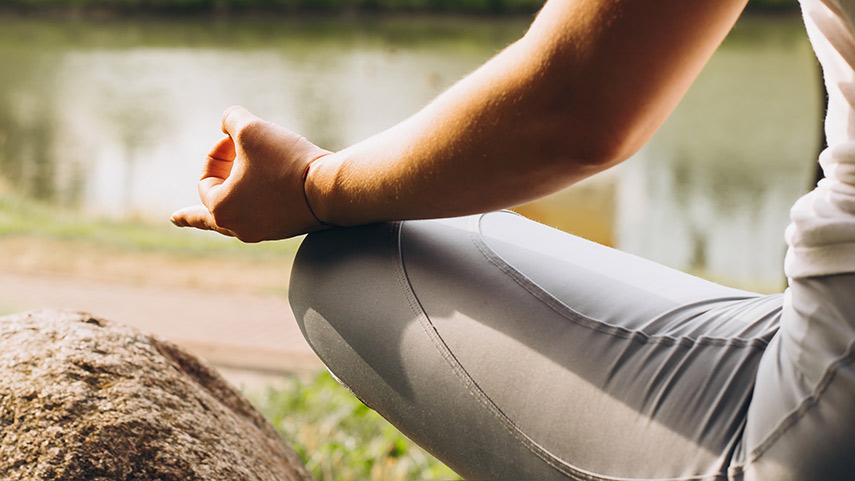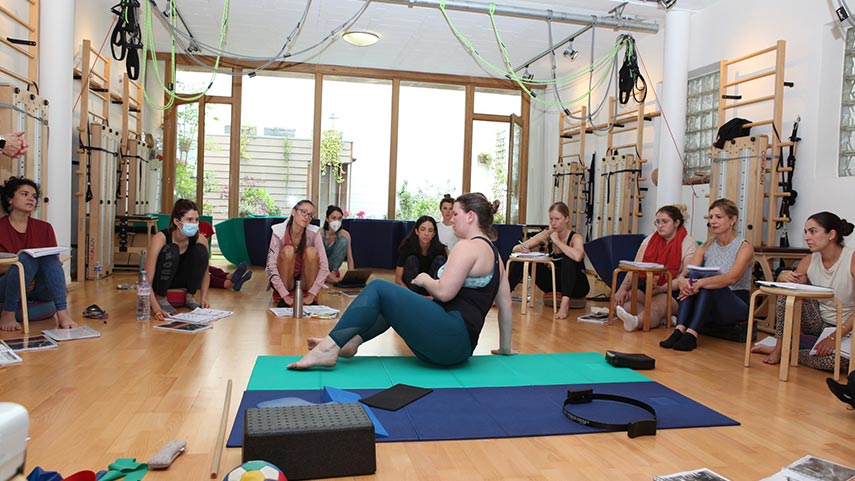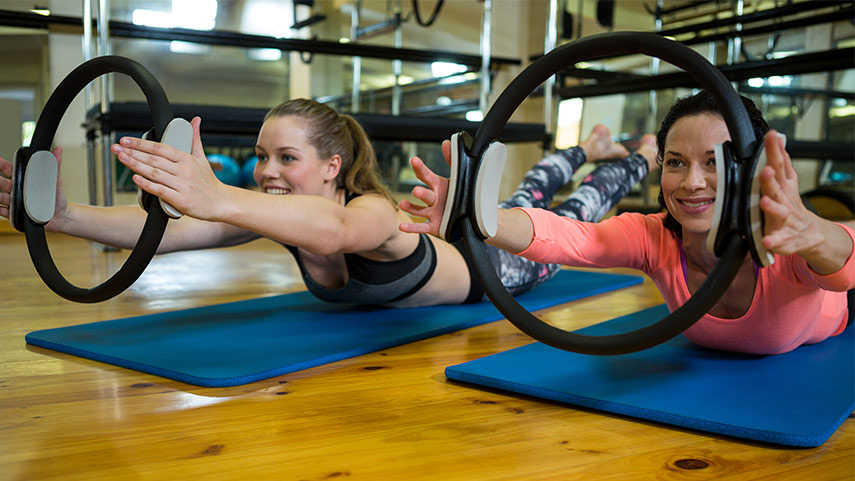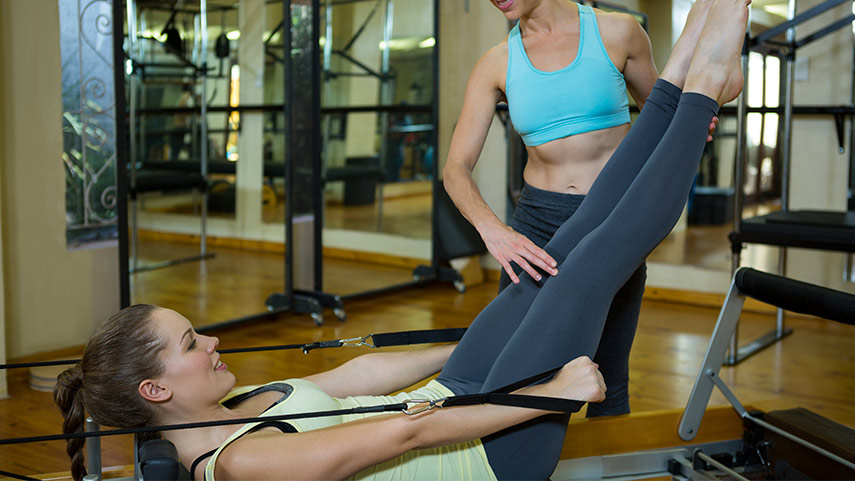Can Pilates Replace a Visit to a Psychologist? The Surprising Mental Health Benefits of Pilates
In a world where stress and anxiety have become part of daily life, more people are turning to practices like therapy and mindfulness to maintain their mental well-being. However, an unexpected contender has entered the conversation: Pilates. While traditionally known as a form of physical exercise that strengthens the core, improves posture, and enhances flexibility, Pilates is also making waves for its significant mental health benefits. Can Pilates really replace a visit to a psychologist? While it may not fully substitute professional mental health care, it offers several therapeutic benefits that can complement or even reduce the need for therapy in certain cases.
The Mind-Body Connection: The Foundation of Pilates and Mental Health
At its core, Pilates is built on the principle of mind-body integration. Every movement in Pilates is designed to be intentional, precise, and supported by controlled breathing. This emphasis on mental focus creates a meditative quality to the practice, similar to techniques used in therapy.
By paying close attention to breathing patterns and bodily sensations, Pilates practitioners cultivate greater self-awareness, a key aspect of many therapeutic approaches.
This mind-body connection also promotes emotional regulation. Studies have shown that focusing on controlled breathing can activate the parasympathetic nervous system, which helps reduce stress and lower cortisol levels. In many ways, this mirrors the breathing techniques taught in therapy sessions for managing anxiety and panic attacks.
Pilates as a Tool for Reducing Stress and Anxiety
One of the most immediate and noticeable benefits of Pilates is its ability to alleviate stress. In today’s fast-paced world, it’s common to feel overwhelmed by the demands of work, family, and social obligations. Pilates creates a space where individuals can disconnect from external pressures and focus inward.
During a Pilates session, the emphasis on deep, diaphragmatic breathing helps calm the nervous system and shift the body out of its “fight or flight” mode. This state of relaxation allows the mind to reset and let go of tension. For individuals with anxiety disorders, Pilates can serve as a grounding practice, similar to the grounding exercises used by psychologists to help patients manage anxious thoughts.
Many practitioners describe their Pilates sessions as a form of “moving meditation.” The repetitive nature of the exercises and the focus on flow and rhythm help quiet the mind, much like meditation or mindfulness-based stress reduction (MBSR) techniques commonly prescribed by mental health professionals.
Building Self-Esteem and Confidence Through Movement
Low self-esteem and negative body image are common issues addressed in therapy. Pilates can play a significant role in improving self-perception and building confidence. The practice encourages individuals to celebrate what their bodies can do, rather than focusing on how they look. This shift in perspective helps combat feelings of inadequacy and promotes self-compassion.
Unlike high-intensity workouts that can feel competitive or punishing, Pilates is a non-judgmental practice where progress is measured by personal growth, not comparison. Each session is an opportunity to connect with your body, appreciate its strength, and witness its gradual improvement. This positive reinforcement can be deeply therapeutic, especially for individuals struggling with body dysmorphia or low self-worth.
Furthermore, the emphasis on small, incremental progress in Pilates mirrors cognitive behavioral therapy (CBT) techniques, where small achievements build toward larger goals. As individuals gain strength, flexibility, and control over their bodies, they also develop a greater sense of agency and resilience – qualities that are essential for mental well-being.
Pilates and Trauma Recovery
In trauma recovery, regaining a sense of safety within one’s body is crucial. Pilates provides a structured and supportive environment where individuals can explore movement without fear or judgment. The slow, deliberate nature of Pilates exercises helps practitioners tune into their physical sensations, which can be grounding and stabilizing for those experiencing post-traumatic stress disorder (PTSD) or dissociation.
Additionally, Pilates reformer exercises can be particularly beneficial for trauma survivors. The reformer’s adjustable resistance allows for gentle, low-impact movements that help release stored tension without overwhelming the body. This gradual release of tension mirrors techniques used in trauma-focused therapy to help individuals process and let go of traumatic experiences.
Social Connection and Community Support
Isolation and loneliness are common factors contributing to poor mental health. While therapy can provide a safe space for discussing feelings, social support from a community is equally important. Pilates studios often foster a sense of community and belonging, offering practitioners a chance to connect with like-minded individuals.
Group Pilates classes provide more than just physical benefits – they create an environment of mutual support and shared growth. Participants often develop friendships and a sense of accountability that encourages regular attendance and long-term commitment to self-care. For individuals struggling with depression or social anxiety, this sense of belonging can be a powerful motivator and a source of emotional uplift.
The Role of Breathwork in Emotional Regulation
Breathing is a central component of both Pilates and many forms of therapy. Psychologists frequently teach patients breathing exercises to help manage anxiety, anger, and other intense emotions. Pilates takes this a step further by integrating breath with movement, creating a harmonious flow that promotes relaxation and focus.
During stressful situations, the body’s natural response is to take shallow, rapid breaths, which can exacerbate feelings of panic. Pilates teaches practitioners to take deep, controlled breaths that activate the vagus nerve and signal the brain to relax. This practice helps break the cycle of stress and trains the body to respond to challenges in a more measured way.
For individuals who find traditional meditation or breathing exercises difficult, Pilates offers an alternative that combines physical activity with breath control. The physical exertion helps release pent-up energy, while the focused breathing calms the mind – resulting in a holistic approach to emotional regulation.
Can Pilates Fully Replace Therapy?
While Pilates offers numerous mental health benefits, it’s important to recognize that it may not be a complete substitute for therapy in all cases. For individuals dealing with severe mental health conditions, such as clinical depression, PTSD, or severe anxiety, professional psychological support is crucial. However, Pilates can serve as a powerful complement to therapy, enhancing its effects and providing additional tools for managing stress, anxiety, and emotional challenges.
For some individuals, the regular practice of Pilates may reduce the frequency of therapy sessions or act as a preventive measure against mental health struggles. By fostering self-awareness, building resilience, and creating a sense of balance, Pilates empowers individuals to take an active role in their own mental well-being.
Conclusion
Pilates is more than just a physical workout – it’s a holistic practice that nurtures both the body and mind. With its ability to reduce stress, build self-esteem, support trauma recovery, and foster social connections, it’s no wonder that many people find it to be a therapeutic experience. While it may not completely replace a psychologist, Pilates can be a valuable tool for maintaining mental and emotional balance.
Corpus Studios™ team believes in the transformative power of Pilates for both physical and mental well-being. Join us to experience how mindful movement can become a vital part of your self-care routine and help you live a more balanced, fulfilling life.





